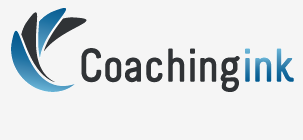Have you got the shoulds?
/I work with many clients to help them become more self-aware and better at understand their cognitions and internal self-talk. Whilst we all have a endless internal monologue consisting of words, images and ideals about ourselves, our loved ones and the world around us, some of those cognitions are more accurate and healthy than others. In fact, some cognitions can be blatantly destructive, causing anxiety and self doubt.
One of the most common, and most destructive words I hear in coaching are "should and shouldn’t".
So why are shoulds so destructive?
These terms represent extreme absolutes, meaning they leave no room for exceptions or alternatives, and thus limit your thinking. The thought, “I should have known this was going to happen” implies that there is some way of predicting the future and that a ‘good’ or more ‘prepared’ person would have done something better.
The term should also creates a tremendous amount of pressure to perform a certain way or to do a certain thing, even if its not what you really want to do. Thinking “I should be more productive” can create feelings of guilt and leaves you feeling powerless and ashamed.
The word should is one of the most unreasonable words you can use.
How can I remove the shoulds in my life?
Using absolutes terms like should or shouldn’t is never easy to remove from your life. Such cognitions are a product of many years of formation. However, with awareness and practice you can start to replace the shoulds with more helpful and realistic phrases.
Next time you notice yourself saying or thinking you should or shouldn’t do something, try replacing it with the word prefer. For example, if your thinking, “I should be more productive”, try thinking “I would prefer to be more productive each day. Let me see what I can do to accomplish more”.
Replacing should with prefer removes the guilt and empowers you to find a way to take action.
Beware of other absolutes
Whilst I hear should and shouldn’t the most in coaching sessions, there are other irrational and absolute terms to be aware of, including: never, always, everyone, everything, nothing, must and ought to.
What absolute terms do you notice you tell yourself?


